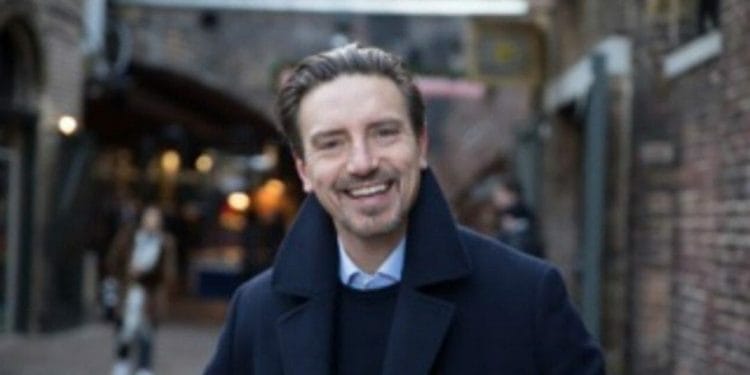Writer Martin Askew grew up in the East End and started writing after witnessing the murder of a close friend. Martin’s screenplay Snow in Paradise (based on his own life story), was selected for the 2014 Cannes Film Festival, and Synergy Theatre Project have commissioned him to write There Is A Field which is at Theatre503 20th February to 16th March 2019.
Your play, There is a Field, is coming to Theatre503 what can you tell us about it?
It’s the story of an East End family coming to terms with grief, love, violence and faith, all affected by global events. The play is about a young man who’s become alienated from his own family and doesn’t want to go back his father’s funeral but also about searching for love and loyalty and finding it in unexpected places, sometimes the wrong places.
It’s also about the East London I have known, how it’s changed and become a place where old values, new money and diverse people live together in conflict and harmony. I’ve tried my best to keep the sharp language and humour of the East End too, even though we are dealing with some serious issues, us Hoxton folk make light of most of life’s angst, even the sacred, it’s the rebel in us all I suppose.
What made you start writing?
I never wanted to write, I was good at art because they put a dunce’s hat on my head and gave me a pack of crayons, I was severely dyslexic at school you see. I ended up good at boxing though, but that was nothing to do with teachers, just my family all boxed so it was the norm.
So writing was a complete about turn, by accident or should I say by trauma. My pal got murdered in front of me in a street fight. I had to have therapy and was diagnosed with PTSD. In therapy they said “write your emotions” I did and ended up walking into Hoxton Hall, a community arts theatre and meeting all these middle-class arty types obsessed with eating lentils; they were lovely people and embraced me.
I thought about wearing sandals too but it was winter at the time. I then did some Chekhov, Cartwright, Brecht, Pinter and Berkoff. I was smitten and me East End macho lifestyle was blown away. Nothing down the boxing gym could ever be the same when me mate caught me eating a piece of fennel gratin with thinly sliced chestnuts on top.
Was it difficult to write based on your own experiences?
Most of my writing has always been about what I know. I was very fortunate I grew up in a such a flamboyant and colourful place, back in the Eighties and Nighties. London’s East End was still quite real, people still swore without posh accents. I threw my writing away when I embraced Islam and went to Mecca. I thought I had to be double devout you see, like a monk. I must have seemed quite mad in my green hat and robes but I was in a state of real love at the time. I call it my spiritual epiphany. That was eighteen years ago and I’m still a cockney Muslim, one of many I might add.
More recently, when my Dad was dying of emphysema I become consumed with what little life he had left, and all I kept thinking about was his funeral. At that time I was on a Synergy playwriting course down the V&A and I thought, “What if I was that fresh convert, that soppy know it all zealot, I wouldn’t go home and bury me own father, would I?”
How did Synergy Theatre Project support you?
Synergy has provided me with such opportunities, I’ve worked in the V&A, Theatre503 and Soho Theatre and worked with professional artists and playwrights.
They have given me employment in pupil referral units with some amazing, talented young people. They give so many ex-prisoners work in different fields of the creative industry it’s amazing. You just can’t take account of that kind of help, I personally am indebted to Synergy for life, they’re like an extended family, or the mafia without bullets.
How would you describe the effect Synergy and writing has had on your life?
Synergy has given me the belief that I am a writer, and I say Synergy because I’ve wrote before on projects but never had unconditional artistic support. Now this is where I get all poncy. They really believe in the artistic vision, because in other genres it gets somewhat watered down. I really have fell in love with the playwriting process, I think outside of the novel it must be the most raw and truthful form of expression on the page.
What would you say to anyone thinking of coming to see There is a Field?
Come with an open mind and make sure you pay the full price, small theatres need every penny right now. Maybe you should think about seeking the works of Jalaluddin Rumi, the13th Century Persian poet because I feel There is a Field is within us all; a place of no judgment, no right or wrong, a common place of coming together. I keep his words close to my heart, “Out beyond ideas of wrongdoing and right doing, there is a field. I’ll meet you there”.

















